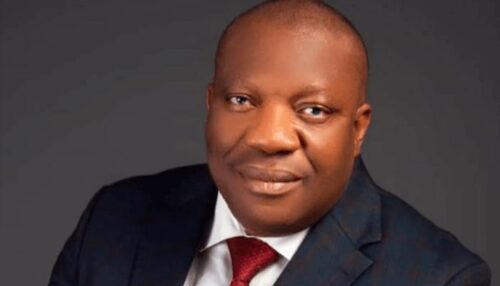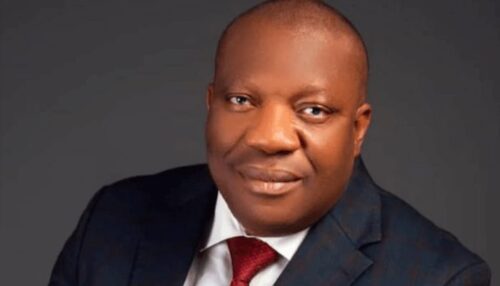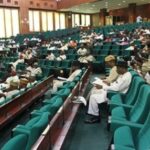The Nigerian Senate has proposed a substantial increase in the budget for the Ministry of Solid Minerals Development, raising it from the initially proposed ₦9 billion to ₦539 billion in the 2025 Appropriation Bill. This recommendation was announced by Sampson Ekong, Chairman of the Senate Committee on Solid Minerals Development, during the committee’s presentation to the Senate Committee on Appropriation.
Ekong justified the upward revision, emphasizing that the initial allocation was insufficient to unlock the full potential of Nigeria’s solid minerals sector. He pointed out that despite limited funding in the previous year, the ministry managed to generate ₦37 billion in revenue, proving that with better financial support, the sector could significantly contribute to the nation’s economy.
The decision to increase the ministry’s budget followed extensive discussions with the Minister of Budget and other key stakeholders. Ekong acknowledged that while the proposed amount is still lower compared to investments made by other nations in similar sectors, it represents a positive step forward.
During the budget discussions, Senator Adams Oshiomhole, Chairman of the Senate Committee on Interior and a member of the Appropriation Committee, stressed that funding alone would not suffice unless the pressing issue of illegal mining is tackled head-on. He alleged that powerful individuals, including retired military generals, are deeply involved in illegal mining activities, which have been draining the country’s revenue.
Oshiomhole urged the government to deploy security forces such as the Army, Police, and Air Force to combat illegal mining operations, similar to how illegal oil bunkering in the Niger Delta has been addressed. He insisted that the same level of intensity and commitment should be applied to curb the illegal mining menace.
The senator further claimed that illegal mining syndicates operate sophisticated networks, using helicopters to transport gold out of the country, enriching a select few while the nation continues to lose billions in potential revenue. He expressed frustration over the government’s perceived reluctance to address the issue with the same urgency applied to oil-related crimes.
He stated, “If the federal government can deploy military forces to combat illegal oil bunkering, there is no justification for failing to act decisively against illegal mining. We must not use double standards.”
Oshiomhole also revealed that he had previously raised concerns with former President Muhammadu Buhari, urging action against those behind the illegal mining operations. He described the situation as a well-organized operation, with illegal miners arming their workers and maintaining secret transport channels to smuggle resources out of the country.
He emphasized the need for the government to take bold steps, including deploying joint military task forces to root out illegal miners, regardless of their status or influence. “Whether they are retired generals, former public officials, or business moguls, they must be held accountable,” he said.
In response, the Senate committee members backed Oshiomhole’s position and called on security agencies to take immediate action as part of efforts to diversify the economy.
The committee highlighted the importance of increasing the ministry’s budget to equip it with the resources necessary to properly regulate the sector and curb illicit activities. Lawmakers agreed that a significant budgetary boost would empower the ministry to harness the nation’s solid mineral resources more effectively.
Ekong reiterated that the increased budget would not only improve revenue generation but also create jobs and attract foreign investments. He noted that during their deliberations with the Minister of Budget, stakeholders unanimously supported the proposal to raise the ministry’s allocation, given the sector’s potential to contribute significantly to the economy.
In a related development, Senator Abdulaziz Yar’adua, Chairman of the Senate Committee on the Army, advocated for removing the military from the envelope budgeting system. Presenting his committee’s report, Yar’adua highlighted the ongoing expansion of the Nigerian Army, which includes the establishment of new divisions and specialized units to enhance national security.
Despite the Army being allocated ₦1.456 trillion in the 2025 budget, Yar’adua identified significant funding gaps in overhead and capital expenses, urging the government to bridge these shortfalls to support the Army’s operational and infrastructural needs.
He pointed out that the Army required ₦2.13 trillion to fully execute its plans, with an overhead shortfall of ₦16 billion and a capital shortfall of ₦664 billion.
As deliberations on the budget continue, lawmakers remain focused on ensuring that key sectors receive adequate funding to support national development objectives.




